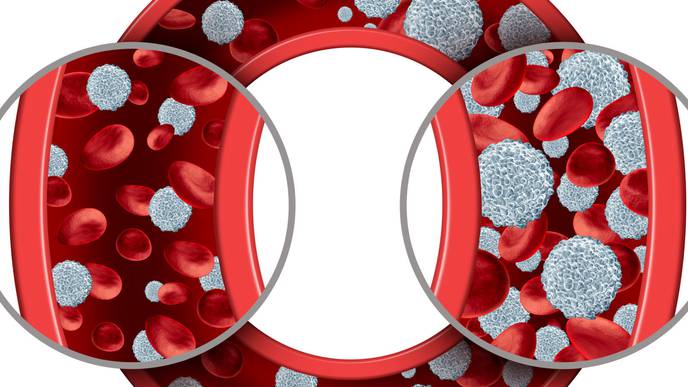ReachMD
Be part of the knowledge.™Obesity, Overweight Associated with Worse Outcomes in Leukemia

New study findings published in Blood Advances suggest that elevated body mass index (BMI) is associated with inferior treatment outcomes for adolescent and young adult patients with acute lymphoblastic leukemia (ALL).
Credit: LASZLO - stock.adobe.com
Researchers are taking a growing interest in the impacts of weight on health outcomes, particularly as the United States faces a growing obesity epidemic. The new study findings highlight the impact of weight on treatment toxicities and outcomes, and the investigators call for further research on the topic.
Obesity affected an estimated 40% of the US population as of 2020 and may play an adverse role in adolescent and young adult responses to ALL treatment regimens.
“We have known for roughly 15 years that obesity affects survival in pediatric patients treated for ALL, and more recently, we are recognizing a similar relationship in adult populations,” said Shai Shimony, MD, lead author of the corresponding study and an advanced fellow at the Dana-Farber Cancer Institute, in a press release. “But we wanted more granular data on this, to understand why this correlation exists and how dependent it is on age.”
In the study, researchers collected data from 388 adolescents and young adults between the ages of 15 and 50 years, with a mean age of 24 years, who were being treated on Dana-Farber Consortium pediatric regimens for ALL between 2008 and 2021. The investigators examined the relationship between BMI, age, toxicities, and treatment outcomes in the cohort, aiming to identify any correlations or trends.
In total, 53.3% of adolescents and young adults included in the study had a normal BMI, while 46.6% were classified as overweight or obese. Importantly, those with an overweight or obese BMI exhibited a higher rate of non-relapse mortality (11.7% vs 2.8%), a lower event-free survival rate (63% vs 77% at 4 years), and a worse overall survival rate (64% vs 83%) compared to those with normal BMIs.
The investigators also noted that the study found equivalent overall survival among younger adults aged 15 to 29 years and older adults aged 30 to 50 years with normal BMI, which they said is a very important finding because age is often considered an adverse prognostic feature in ALL. The research team also found that the main factor driving worse outcomes among the overall cohort was non-relapse mortality, rather than disease relapse. Elevated liver enzymes and glucose levels were more frequent in patients considered overweight or obese, as well.
In the multivariable model for survival, higher BMI was associated with worse survival, whereas age was not associated with survival and elevated triglycerides were associated with improved survival. Elevated triglycerides reflect the activity of asparaginase, a common chemotherapy used in the regimen, and this finding suggests that this affordable lab test could be used as a biomarker of treatment efficacy; however, the investigators said this should not be viewed as an adverse finding.
“This study highlights the association between elevated BMI and increased treatment-related toxicity, non-relapse mortality, and decreased overall survival in [adolescents and young adults] undergoing treatment for ALL with intensive pediatric regimens,” Shimony said in the press release.
The study does have several limitations, including its retrospective nature, the lack of data on measurable residual disease outcomes, and the mostly White patient population. The investigators also emphasized that BMI and other measures of obesity should be prospectively collected and correlated with outcomes in multiple treatment contexts, including patients of all ages and with new treatment regimens incorporating novel therapies.
“Moving forward, we hope that measures of obesity will be considered a vital variable in determining the most suitable treatment regimens for each individual patient,” Shimony concluded.
REFERENCE
Obesity and high weight linked to adverse outcomes in leukemia treatment. News release. EurekAlert. July 11, 2023. Accessed July 12, 2023.https://www.eurekalert.org/news-releases/994487https://www.eurekalert.org/news-releases/994487
Facebook Comments